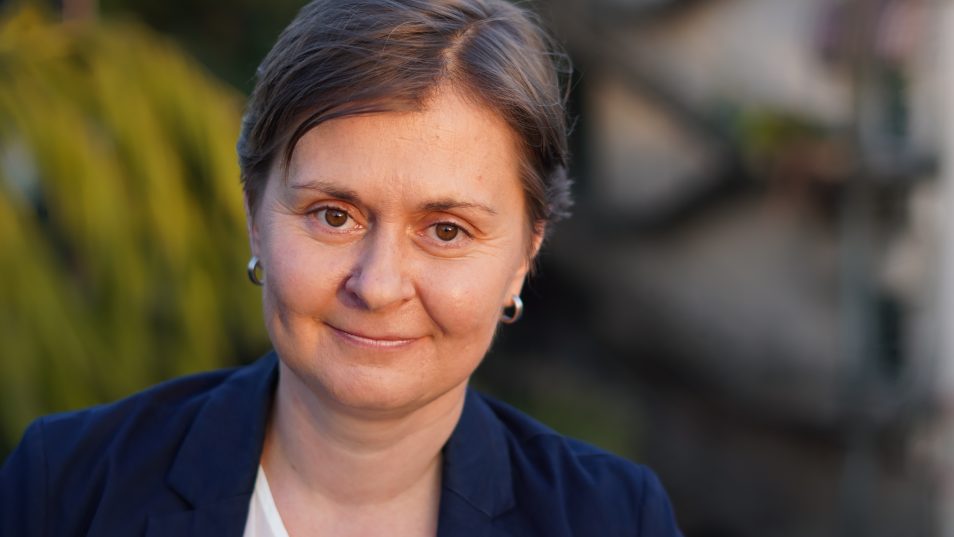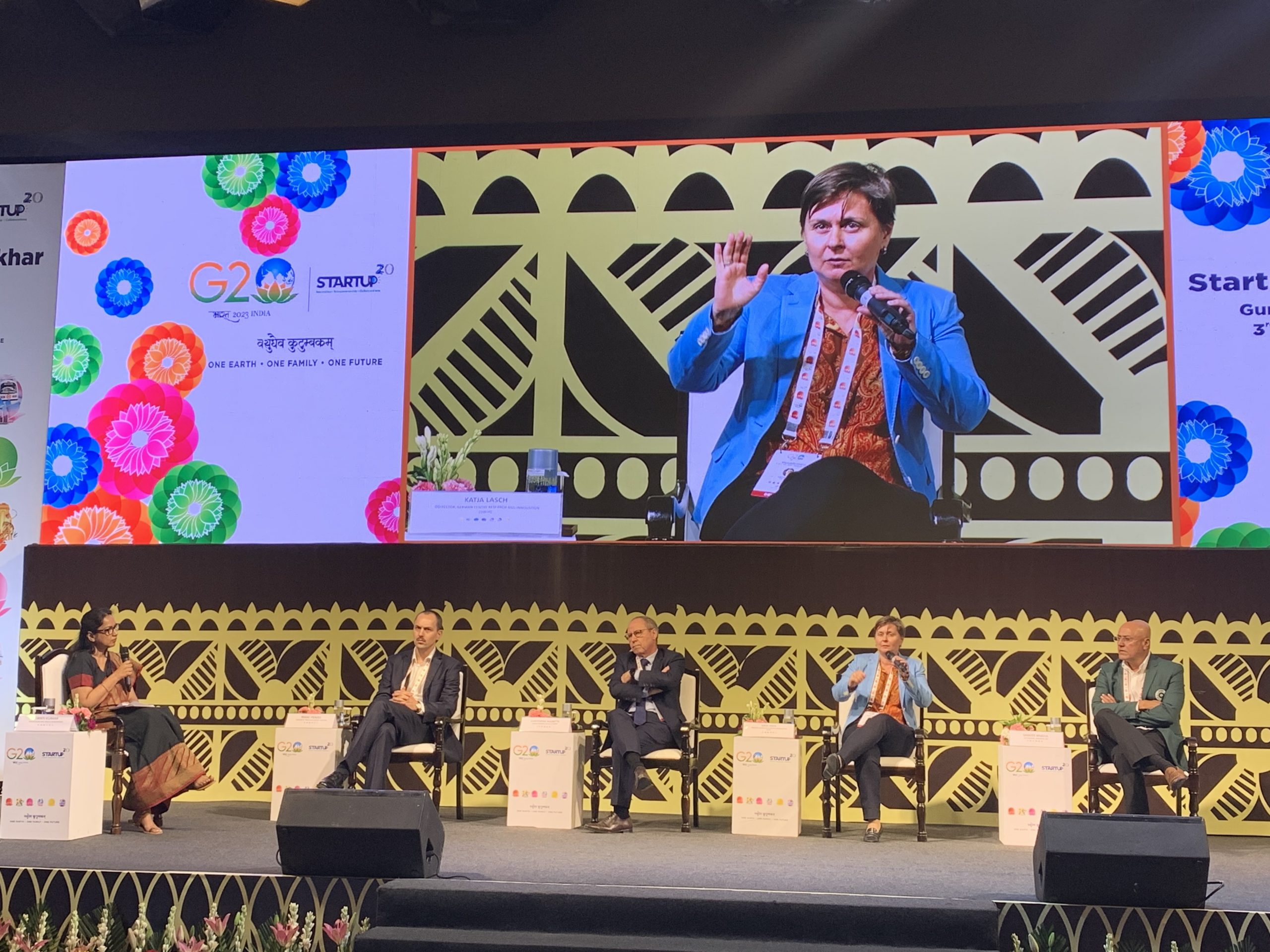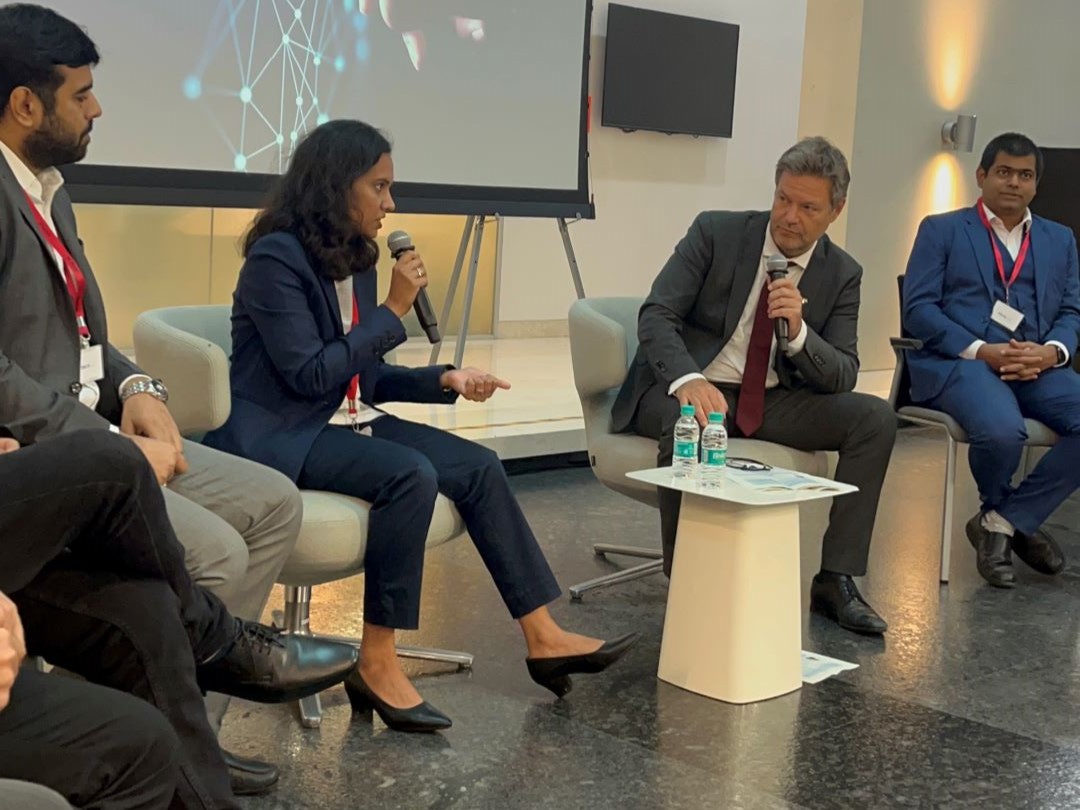You have to actively engage in the discourse and be present onsite.
 © DAAD/ DWIH New Delhi
© DAAD/ DWIH New Delhi
The current G20 presidency is an opportunity for India to present itself on an equal footing with the major industrialised nations of the world. Dr. Katja Lasch knows the country very well as the Director of the DAAD Regional Office and the German Centre for Research and Innovation (DWIH) New Delhi. In the interview, she talks about her experience as Co-Chair of the G20 Startup20 Engagement Group and DAAD and DWIH’s significant and successful work on ground in India.
Dr. Lasch, the G20 presidency could be an opportunity for India to present itself as a major player on the world stage. Is the country taking advantage of this opportunity?
I have to say that India is taking the G20 presidency very seriously. The country has succeeded in making G20 socially mainstream, so that right from the beginning, one does not get the impression that it is an elite event. When you drive through New Delhi or even smaller cities, you see the G20 logo everywhere, and the media is all over the topic as well. The G20 summit is also a top priority for politics. To a considerable extent, this then reflects internationally as well.
In what way?
Take the many ministerial visits from the German side in recent months. Foreign Minister Baerbock, Economic Affairs Minister Habeck, Transport Minister Wissing, and most recently, Labour Minister Heil travelled personally to get a first-hand impression of India as an emerging industrial nation. I think the country has managed to present itself very successfully as a respected partner with enormous economic and scientific potential. The interest shown by German politicians in India this year was certainly noteworthy.
Does India really have the potential to compete on an equal footing with major industrialised nations?
In the field of science and research, definitely. At the end of August, India became one of only four nations in the world to successfully land on the moon. On the one hand, this demonstrates the country’s technical know-how, and on the other, its ambition to catch up with the leading industrialised nations in the coming years, including the field of field of science and research. India’s startup scene, in particular, is developing very well by international standards.

You have been particularly focused on this lately as the Director of the German Centre for Research and Innovation (DWIH) New Delhi, correct?
That is correct. We have recognised that there is a significant need for international collaborations, particularly among science-based startups. We are trying to address this gap through various event formats. For instance, the Incubators Connect Programme. In June 2023, we conducted workshops and networking events in Karlsruhe, Braunschweig, and Berlin with twelve incubators from India and a total of 50 representatives from the German startup ecosystem. Particularly in the workshops, there was an intensive exchange on the future collaboration between incubators at universities and research institutions. I think, by now we have been able to build up broad expertise in this area, which also led to my being invited as Co-Chair of International Alliances subgroup of the Startup20 Engagement Working Group as part of the G20 activities.
How was your experience working in the G20 Working Group?
It was very exciting and constructive. As a representative of DWIH New Delhi, I had the opportunity to directly contribute my expertise to the development of a policy paper. I was a part of two panels at the Startup20 Engagement Group Summit in Gurugram in early July. It was a great success for us to be able to present our perspective from Germany and our international work at a relevant political level. There were additionally a number of accompanying events in the framework of G20 in which we were also involved.
Which ones, for example?
The Association of Indian Universities had organised an international conference where universities from G20 countries could exchange ideas. We were on-site at this event and supported the German universities in establishing contacts. Then, Federal Minister for Economic Affairs Dr. Robert Habeck had several appointments in India as part of the Working Group on Business, where we contributed with our expertise in the field of startups and innovation. The fact that we were approached directly by the Federal Ministry for Economic Affairs and Climate Action confirmed once again how broadly we have been able to position ourselves in the meantime. We also had the opportunity to participate in a panel on international scientific cooperation. This took place during a G20 side event of the Office of the Principal Scientific Advisor, organised by the Delhi Innovation Cluster (City Knowledge Innovation Cluster, Delhi Research Implementation and Innovation CKIC-DRIIV)

How would you describe the general potential of the DWIH New Delhi, or more broadly, the DAAD, as a stakeholder to influence international political decisions at a level like the G20?
On the one hand, both the DAAD and DWIH New Delhi have the expertise to engage in highly relevant science policy developments. The recent Indo-German Forum on Sustainable Urban Mobility in March 2023 is a good example of this, a topic that is directly relevant to the work of the G20 conference, particularly in the Science Engagement Group. In addition, one of our core competencies is to initiate international cooperations. For example, there is the conference iHED – International Higher Education Dialogue that we have been organising for a few years now. This is an online platform where German and Indian universities can exchange views on internationalisation issues. And then there’s the area of innovation, with our direct G20 involvement. For instance, we recently managed to get the Chair of the Startup20 Engagement Group, Dr. Chintan Vaishnav as a panellist for a KIWi Policy Talk. The DAAD and DWIH in India are increasingly seen as significant players in this context.
You mean as significant players in the policy area?
That’s right. This was also a realisation in the context of the current Science Diplomacy strategy of the German government. As the DAAD and DWIH in India, we aim to position ourselves broadly. In addition to scholarships, support for university co-operations, and other activities, we also want to have an impact at the policy level. To do this, one must actively engage in dialogue, do so consistently and in a well-connected manner on the on-site. This is also our strength as the DAAD, as we are physically present in the respective countries and have a deep understanding of the local context and structures. This proves beneficial in the realm of Science Diplomacy.
Interview: Klaus Lüber (September 12, 2023)
This article originally appeared in German on the website of DAAD Bonn.
